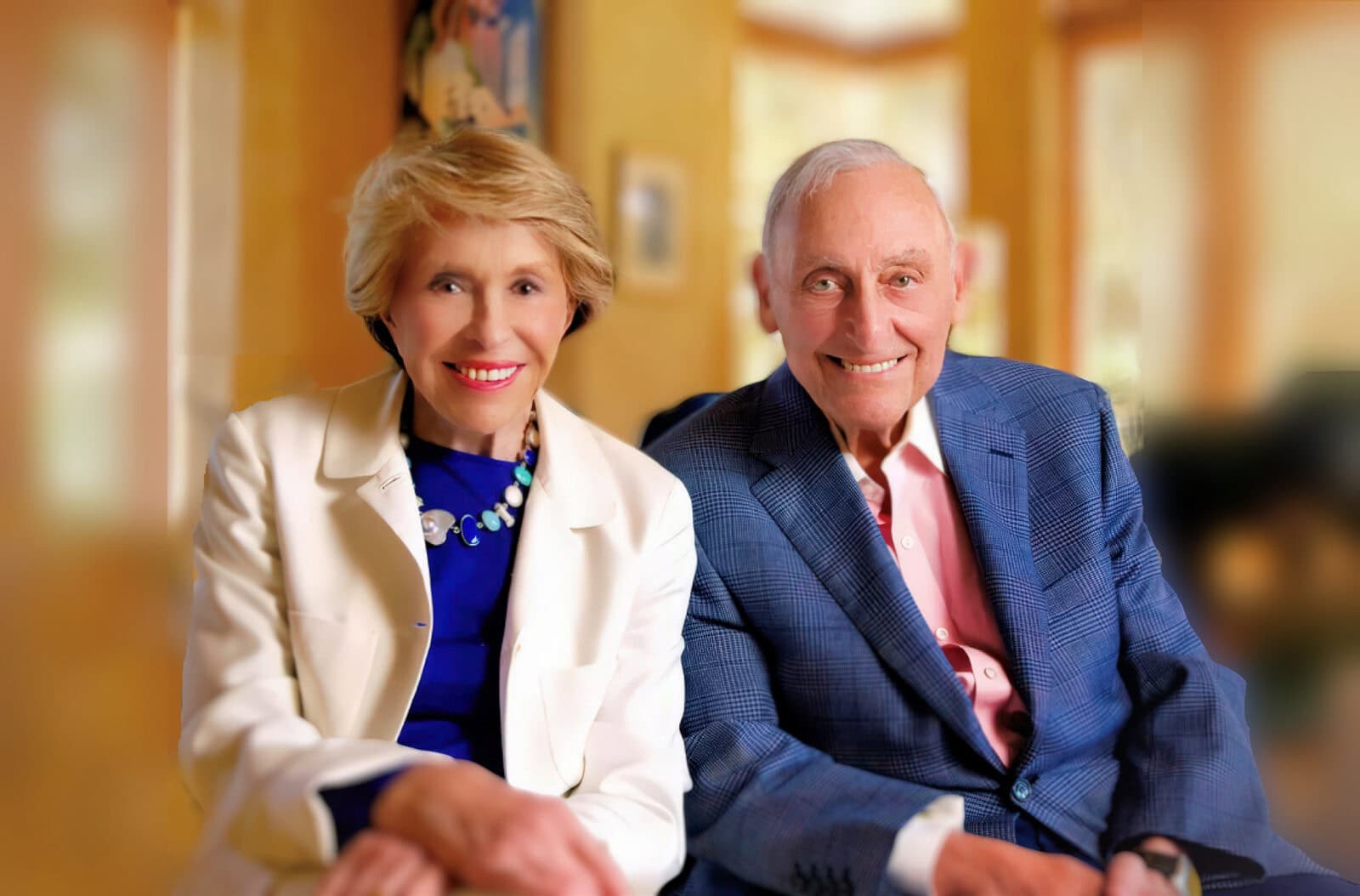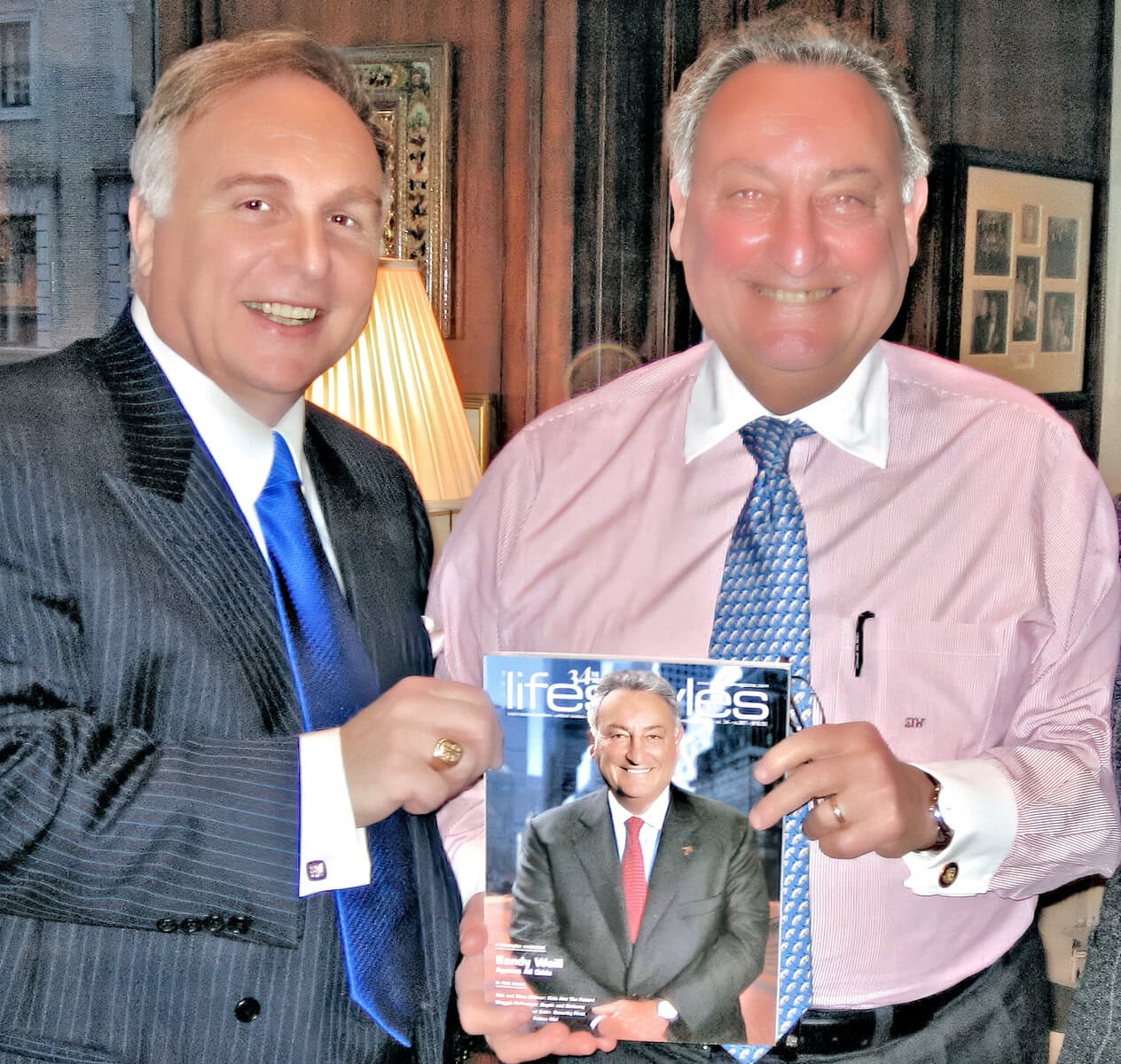$100 million latest gift to Weill Cancer Hub West from Sandy and Joan Weill raises their philanthropic giving over the $1 billion mark

Joan and Sanford “Sandy” Weill have once again redefined what legacy and leadership in philanthropy look like.
In a landmark announcement, the Weill Family Foundation committed $100 million to launch the Weill Cancer Hub West—a transformative new initiative uniting Stanford University and the University of California, San Francisco, in a bold, collaborative campaign to accelerate breakthroughs in cancer research and treatment.
Sanford “Sandy” Weill and his wife, Joan, are among the most prominent American philanthropists, known for their extensive support of education, medicine, the arts, and global initiatives.
The Weill family and the Weill Family Foundation have gifted more than $1 billion to nonprofits in the U.S. and internationally.
Their philanthropy spans education, medical research, patient care, music, and the arts.
Their lifetime giving to Weill Cornell Medicine and Cornell University alone exceeds $650 million.
Notable single gifts include a $185 million donation to the University of California, San Francisco, for the Weill Institute for Neurosciences and a $50 million gift in 2025 to create the Weill Cancer Hub East.
Their latest gift, structured as a challenge grant designed to double its impact by matching an additional $100 million from other donors, signals not just continued generosity from the Weills but a visionary leap forward in how cancer will be tackled on the West Coast and beyond.
This new endeavor continues a lifetime of giving that has already helped reshape the frontiers of medicine, neuroscience, and higher education. It also reflects the enduring values of a man who has graced the cover of Lifestyles Magazine/Meaningful Influence on two occasions—once as a titan of industry and once as a philanthropic architect of the future.
At 92, Sandy Weill remains as intellectually engaged and strategically bold as ever. “When bright minds partner without ego,” he told us in a recent conversation at his Sonoma home, “that’s when you see miracles.”
The Weill Cancer Hub West, years in the making, will serve as a model for how elite institutions can collaborate to solve problems that no single university or lab can address alone.
Through deep collaboration between scientists, clinicians, and engineers, and with the latest tools in artificial intelligence, CRISPR gene editing, and personalized immunotherapy, the Hub is poised to attack cancer from multiple new angles simultaneously.
Among the ambitious research efforts being funded are in-body immune cell engineering using CRISPR, patient-specific cell therapies targeting solid tumors, the study of metabolic drugs and diets in slowing cancer progression, and the application of AI to match patients with highly personalized treatment pathways—especially for late-stage, difficult-to-treat cancers.
Already, Nobel laureate Jennifer Doudna, (recent cover profile in Lifestyles Magazine/Meaningful Influence), Stanford immunologist Dr. Crystal Mackall, and UCSF’s Dr. Alan Ashworth are among the leading scientific voices lending their vision to the initiative.
Their goals are unflinching, their timelines urgent, and the potential impact extraordinary. “We’re embracing risk,” Ashworth said this week.
“These projects won’t fail in the sense of doing nothing—they’re reaching beyond the known horizon.”
This is not the Weills’ first transformative contribution to science.
In 2019, they launched the Weill Neurohub, bringing together neuroscience researchers from UCSF, UC Berkeley, the University of Washington, and the Allen Institute.
(At the time, Lifestyles Magazine/Meaningful Influence facilitated the initial introduction between Paul Allen and the Weills.)
Earlier this year, they announced the Weill Cancer Hub East, a $50 million initiative connecting Weill Cornell Medicine, Princeton, Rockefeller University, and the Ludwig Institute.
Their approach consistently favors big visions and bold partnerships—gifts designed not only to advance science but also to change the way science is conducted.
In today’s philanthropic ecosystem, they stand shoulder to shoulder with changemakers like Mark Zuckerberg and Priscilla Chan, Sergey Brin, Sean Parker, and Patrick Collison—leaders who are not simply supporting science but actively reengineering its frameworks for collaboration and speed.
But what sets Joan and Sandy Weill apart is the consistency of their belief in people—their trust that when brilliant minds are given the tools and the freedom to work together, the results can be nothing short of revolutionary.
It’s a belief we’ve seen reflected across decades of their philanthropy, from education to medicine to the arts, and one we’ve celebrated in these pages during both of Mr. Weill’s appearances on our cover.
Today’s announcement is not just another chapter in the Weills’ remarkable journey—it is a call to action for a new era of Meaningful Influence.
As Stanford’s Dr. Mackall said, “This gift—with—a—capital—G lets us keep our foot on the gas. No more waiting. We go now.”
And with the Weills leading the way, the road ahead suddenly feels not only possible but promising.
Photo: Philanthropists Joan and Sandy Weill (WALTER ZARNOWITZ)
Bottom photo: Two decades ago, Sandy Weill was the main cover story of Lifestyles Magazine/Meaningful Influence. The founder of the publication, Gabriel Erem, presented the philanthropist with a copy of the issue. Since then, Weill and his wife Joan have given over a billion dollars to various causes.


